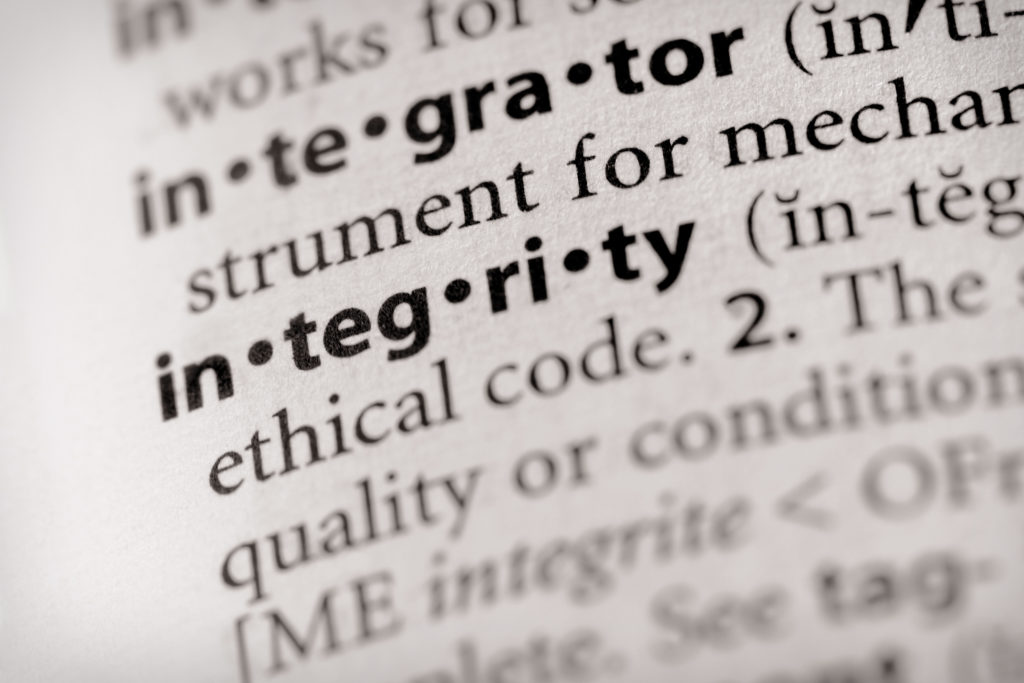This essay is part of our collection on the 2016 election. Read related articles here.
Many young conservatives have been disheartened to see the leaders of their movement endorse Donald Trump. I am one of the disheartened ones. Let me explain what these leaders taught me and why their endorsement of Trump betrays those principles.
Toward the end of college, I became involved with the Intercollegiate Studies Institute. Founded by William F. Buckley, Jr., and fueled by Russell Kirk, ISI promoted typical conservative principles: limited government, individual liberty, and personal responsibility. More than that, it saw itself as a guardian of Western Civilization, handing on a patrimony that most college professors had forsaken. It sought to incubate old-fashioned humanism. If you liked great books and art; if you thought that America needed to strengthen its roots in Christianity and the Western tradition; if you wore bow ties and tweed jackets (with varying degrees of pretension), then you belonged at ISI.
Some years later, I received a fellowship from the Claremont Institute, another staple of American conservatism. While ISI focused on the Western canon, Claremont’s gospel was the Declaration of Independence, which, they argued, should serve as the interpretive key of the Constitution. They hold the rights and principles enumerated in these to be sacred. American progressivism is foreign to America, Claremont argued, a Hegelian agent introduced in the nineteenth century that threatens the Republic. It needs to be fought with a combination of America’s founding principles (rightly understood) and statesmanship, of which Abraham Lincoln and Winston Churchill serve as the most prominent examples.
Start your day with Public Discourse
Sign up and get our daily essays sent straight to your inbox.Through it all, I read First Things and the flowing prose of Fr. Richard John Neuhaus, later serving as a junior fellow and assistant editor at the magazine. In its opening editorial, Neuhaus wrote, “First Things means, first, that the first thing to be said about public life is that public life is not the first thing.” Neuhaus regularly reminded readers that culture preceded and drove politics, that the root of culture lay in cult—worship. Instead of becoming the next dean of American intellectual Protestantism, Neuhaus left “the Movement.” Or, more accurately, the movement left him. He thought that the cruelty of progressivism lay in its destruction of the weak, from aborted children to the decayed moral culture of the poor.
A Shared Commitment to Virtue and Freedom?
These conservative institutions share an understanding of freedom as not only a negative state, but a positive one. True freedom requires virtue, and a truly free society is a virtuous society. Donald Trump is the most visible example today—amid stiff competition—of a man enslaved to his own all-absorbing ego. By no conservative standard is he free or virtuous. He cares little for the arts and letters, for serious self-examination, or for tradition. Donald Trump is the antithesis of the values held by each of these institutions.
I was surprised, therefore, when the first person I respected to support Trump was a former ISI vice president, a man who was the quintessence of the organization to me. Trump will be embarrassing and dangerous, he agreed, but he will have the guts to take on the progressive establishment. He may have totalitarian impulses, but he lacks the ideology to carry out totalitarian nightmares. Yes, he’s Hitler, but he likes Jews. The fact that this remains an exoneration or an argument in his favor leaves me speechless. Coming from a family who fled the Nazi invasion of their country, forgive me if I don’t jump on the bandwagon.
No man is more responsible for the shape of modern conservatism than ISI’s founder, Bill Buckley. Two of his greatest achievements were driving anti-semitism out of the conservative movement and giving it a robust intellectual foundation. In each of these respects, Trump is the exact opposite of Bill Buckley. Trump would only strengthen the forces eroding conservatism’s intellectual and spiritual foundation. Moreover, while progressives like to tar conservatives indiscriminately with the brush of racism, many of Trump’s supporters are in fact racist. Conservatives need to keep the “alt-right” out of the fold, not look the other way while they enter or pretend they don’t exist.
As for the Claremont Institute, I was stunned to hear its founder Larry Arnn, now president of Hillsdale College, call Trump a “good and honest man” and “quite brilliant.” More came with “The Flight 93 Election” and the other writings of the pseudonymous Publius Decius Mus, culminating in Charles Kesler, Brian T. Kennedy, and John Eastman’s endorsements of Trump. Publius’s arguments are worth consideration, but I remain unpersuaded. Trump has little regard for or love of the Constitution and the Bill of Rights. His position on the latter could be summed up, “if you like the Eighth Amendment, you can keep it.” His campaign speeches are more reminiscent of the middle of the Declaration of Independence than the beginning.
As the original Publius wrote in The Federalist 1: “of those men who have overturned the liberties of republics, the greatest number have begun their career by paying an obsequious court to the people; commencing demagogues, and ending tyrants.” Trump isn’t the guardian of our constitutional order’s checks and balances; he’s the reason we have them in the first place. Publius and Tocqueville also warn against the kind of angry populism that is fueling Trump’s rise. The Founders put checks on the will of the people for a reason.
Most preposterously, the leaders of an organization preaching statesmanship have endorsed this man for president. Does the difference between a showman and a statesman really not matter in a time of crisis? Churchill must be rolling over in his grave.
Saddest of all was watching First Things’ editors endorse Trump after months of flirtation. Before being pro-Trump, and before being anti-anti-Trump, R.R. Reno was just plain anti-Trump. Eight months ago in National Review, he wrote, “Our nation’s solidarity is being tested. It will only make things worse if we go Trumpster diving.” That is still true. Others—such as Ross Douthat and Thomas Pfau—have lamented his and Mark Bauerlein’s endorsements. I would add only this: if you think that the erosion of the moral foundation of the working class is the greatest social justice issue of our time, why would you endorse a billionaire who sends crazy tweets at 3:00 AM and urges America to watch a beauty queen’s sex tape?
Compromise and Principle
Many claim a vote for Trump out of desperation, and I can understand a desperate vote. A conservative should only vote for Donald Trump like a fox gnawing off a leg stuck in a trap. But publicly urging support for a candidate, even “given our choices,” is another matter. Conservatism has always wanted to win elections. It has been willing to compromise on candidates and platforms. But behind conservatism lay real principles, advocated not simply because they were popular or would win at the ballot box, but because they remain good and true. We should not promote a candidate who is the opposite of those principles in the hope that we are actually furthering them.
Others claim that Trump might advance the causes conservatives care about. Perhaps, but when conservatives I’ve trusted endorse Trump, it brings to mind Jack Sparrow’s words from Pirates of the Caribbean: “Me, I’m dishonest, and a dishonest man you can always trust to be dishonest. Honestly, it’s the honest ones you have to watch out for. You never can predict if they’re going to do something incredibly stupid.” We can trust that Trump will continue to be dishonest. He is not worth pledging the honor of our movement.
It also brings to mind Doug Kmiec, the Pepperdine Law School professor who traveled the country making a Catholic case for Barack Obama. My friends and I thought that secular progressives were not going to take their cues from Catholic thought. Clearly, we were right. For his services, Doug Kmiec was made ambassador to Malta, but President Obama has never relied on Catholic leaders for advice as President Bush did. Before long, the Department of Health and Human Services started issuing mandates, forcing Catholic universities and religious orders to fight for their rights in court.
Donald Trump’s conservative supporters are the Doug Kmiecs of this election, stumping for a candidate who will gladly take advantage of their support during campaign season, then probably ignore their counsel and betray their cause. Is Malta worth that?
It’s Time to Bear Witness to Truth
Instead of jumping on the Trump bandwagon, those who care about conservative principles should take a higher road. They should bear witness to the truth instead of sacrificing it for political expediency.
If we focus only on the coming presidential election, there is much cause for despair. But one of the truths of conservatism is that there are greater things than elections. If we want to persuade people of our message, we should not entrust it to a man who is its negation. It is tempting to seek victory at the expense of advocacy for the truth, since no one seems to value the truth, or to want to “burn it all down.” We must resist that despair. At the end of American Babylon, in his final days, Fr. Richard John Neuhaus wrote:
As Christians and as Americans, in this our awkward duality of citizenship, we seek to be faithful in a time not of our choosing but of our testing. We resist the hubris of presuming that it is the definitive time and place of historical promise or tragedy, but it is our time and place. It is a time of many times: a time for dancing, even if to the songs of Zion in a foreign land; a time for walking together, unintimidated when we seem to be a small and beleaguered band; a time for rejoicing in momentary triumphs, and for defiance in momentary defeats; a time for persistence in reasoned argument, never tiring in proposing the world a more excellent way; a time for generosity toward those who would make us their enemy; and, finally, a time for happy surrender to brother death—but not before, through our laughter and tears, we see and hail from afar the New Jerusalem and know that it is all time toward home.
Today is a darker time than when Neuhaus wrote, but his is still one possibility for conservative action. We must recognize that this is a perilous moment in American history, but we should not presume that it is that history’s end. Conservatives should remember that they stand for principles greater and deeper than a single election. We should not sacrifice them for the victory of a strong man likely to betray them.














